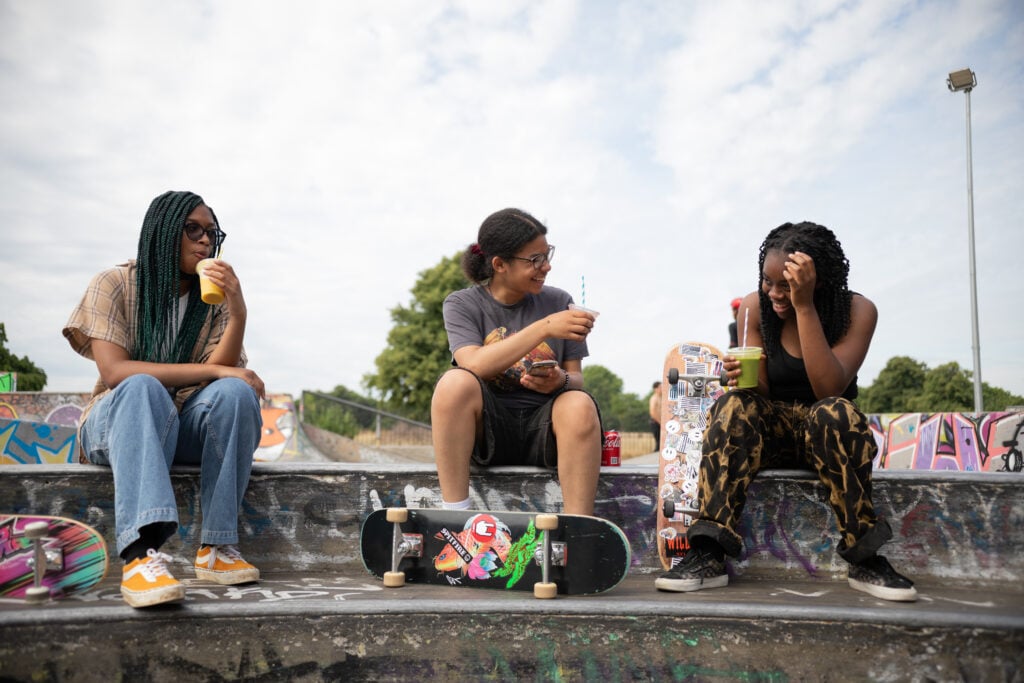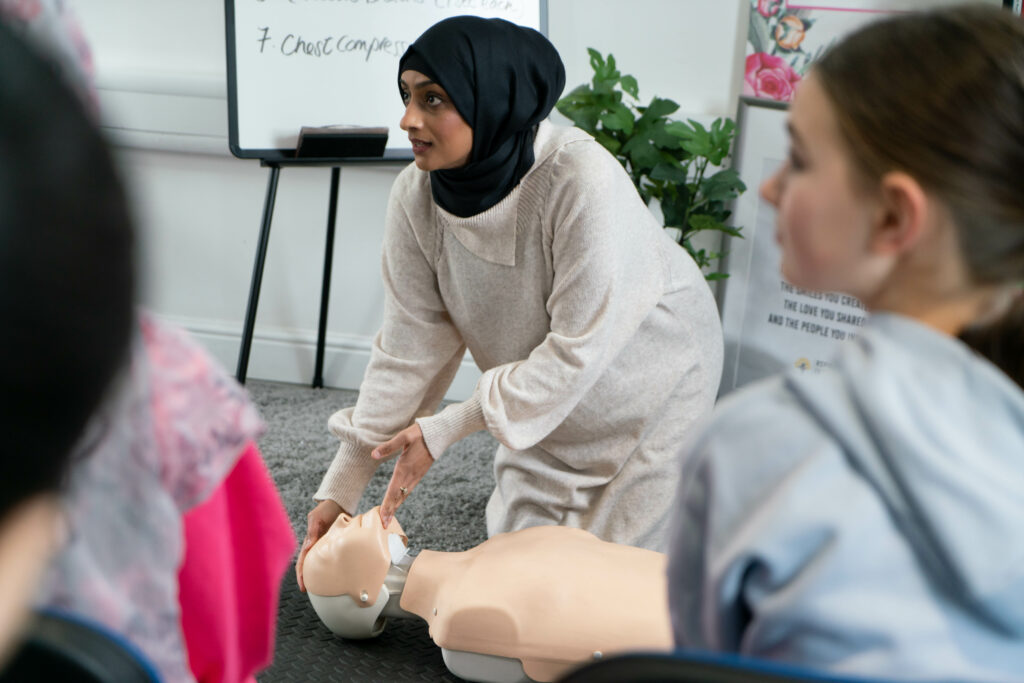DofE and NCS Trust launch collaborative Education and Enrichment project

The DofE and NCS Trust are excited to announce a joint Education and Enrichment Project which includes research and convening activities to build evidence and momentum around four exploratory policy proposals:
- Enrichment Guarantee, which drives better collaboration between the education and youth sectors to enable equity of access to high-quality provision for young people.
- Strengthened partnership collaboration and coordination between schools and youth providers (including local youth and education partnerships).
- Better recognition of young people’s non-formal learning achievements and experiences, making them visible for employers and further education providers.
- Common benchmarks for the impact of enrichment and non-formal learning on a wide range of outcomes, e.g. life skills, mental health and social action.
These have been developed in consultation with government officials, education and youth sector stakeholders and young people. They provide a potential pathway to sustainably and equitably increase access to participation in enrichment and non-formal learning activities for all young people.
The DofE and NCS Trust have a strong track record of working across the education and youth sector to deliver high-quality non-formal learning experiences for young people, and work together to build on existing research and meaningfully contribute in this space.
We are working closely with the Department for Education, the Department for Culture, Media and Sport, and a range of education and youth sector stakeholders, to ensure alignment with current thinking and practice.
Ruth Marvel, CEO of The Duke of Edinburgh’s Award, said: “As young people face up to today’s numerous challenges, the need for enrichment has never been clearer. Enrichment activities complement academic education by helping young people acquire the essential skills they need for life and work, like self-belief, resilience, collaboration and leadership.
“That’s why we are pleased to partner with NCS on this important piece of research which seeks to identify practical ways to increase young people’s access to vital experiential learning through better coordination between schools and community youth services.”
Mark Gifford, CEO of NCS Trust, said: “Alongside academic learning, young people need to build a range of skills that help them to become world-ready and work-ready. NCS is proud of the proven, positive impact we have in these areas and we know from experience that collaboration and partnership with schools is crucial in supporting young people to engage in enrichment opportunities like NCS.
“We’re delighted to be working in partnership with The DofE and engaging closely with the Government to highlight and learn from examples of best practice in collaboration across the youth and education sectors both in our organisations and beyond.”

The case for an enriched education system
Enrichment and non-formal learning activities like sports, adventures away from home, and arts clubs provide opportunities for young people to develop their essential skills, engage with education, build confidence and increase social interaction. However enrichment opportunities are not spread equally across the UK.
The schools that children and young people attend, the areas they are growing up in, and their socio-economic background can all be factors determining their access to and participation in enrichment activities.
For example, in the North East of England, only 9% of young people take part in music classes, compared to 19% of young people nationally and 22% in the South East – meaning young people are missing out on experiences that can prevent violence and antisocial behaviour, improve their mental health and wellbeing, and have a positive impact on their skills for life and work.
The Rt Hon Stuart Andrew MP, Parliamentary Under Secretary of State at the Department for Culture, Media and Sport, said: “The National Youth Guarantee will provide thousands more young people access to regular activities, adventures away from home and volunteering opportunities. Better collaboration between the education and youth sectors could unlock even more opportunities for young people to explore and fulfil their potential. I look forward to seeing what this research uncovers”.
Minister for Skills, Apprenticeships and Higher Education Robert Halfon said: “I’m passionate about supporting young people from all backgrounds to gain the skills they need to climb the ladder of opportunity to a great career. There are lots of options for young people to do that now, including T Levels, apprenticeships, or A levels.
“But it is vital that young people also gain the softer skills, resilience and confidence they need to enter the workplace and become well-rounded individuals, which can be achieved through non-formal learning activities. This new collaboration between the NCS Trust and DofE will help us to better understand how we can improve young people’s skills and experience in a way that best prepares them for the future.”
Research aims and approach
Schools are often not aware of the range of youth services and offers in a local area, and may rely on word-of-mouth or ad-hoc connections to groups and clubs that they already know. Youth and enrichment providers can struggle to reach young people who would benefit from their interventions and don’t have the relationships with schools to solve the issue.
The DofE and NCS Trust are therefore commissioning new research to understand what works to strengthen partnership and collaboration between the formal education and youth sectors. By focusing on pathways to achieve effective partnership and collaboration, this approach maximises the potential impact of activities, resources and infrastructure already in place.
From April to November 2023, NCS Trust and the DofE will work closely with a research partner to:
- Review and gather evidence on successful methods of collaboration between the formal education and youth sectors, that enable better access to enrichment and non-formal learning opportunities.
- Showcase examples of innovative and effective practice in this space, by collecting case studies that show how different approaches to collaboration and coordination work in practice and what is needed to make them happen.
- Gather practical insights and learning from on-the-ground delivery, hearing directly from young people, teachers, school leaders, youth workers, and other practitioners.
- Draw out common themes of good practice that could be scaled through national guidance and form the basis for future practical demonstration projects.
- Gather case studies of improved collaboration, and how they can have a subsequent positive impact on a range of outcomes (e.g. improved school attendance, reduced youth violence and anti-social behaviour, improved skills and confidence, increased access to employment or education opportunities, etc.)
Building on our existing work in this area, the DofE and NCS Trust will continue to convene cross-sector and cross-government stakeholders to share knowledge and discuss the implications of the research findings.
Matty Lee, DofE UK Youth Ambassador, said: “I was fortunate to complete my Bronze, Silver and Gold DofE awards with the RAF Air Cadets despite my school not running DofE. The DofE was incredibly formative and I am now proud to provide enrichment experiences for the next generation as a Cadet Forces Adult Volunteer and DofE Leader, providing them the amazing experiences I had – and still enjoy – with the DofE.”
Lipika Jadwani, NCS Trust Youth Voice Forum member, said: “Taking part in NCS led to such a broad range of opportunities and experiences in the years that followed. I volunteered at the Platinum Jubilee in June 2022, hosted a Hope Hack event, and engaged in a personal development mentoring scheme. I think enrichment opportunities and non-formal learning programmes are so incredibly beneficial for young people as you get to learn so much about your capabilities and about yourself as a person, such as where your interests and strengths lie.
“In a lot of cases, these experiences also inform future career decisions and build valuable skills and experiences for professional applications. Overall, enrichment and non-formal learning programmes are extremely rewarding and valuable for the personal development of young people. In the future, I hope that there are more connections between youth organisations and schools where the importance of enrichment is widely recognised.”




